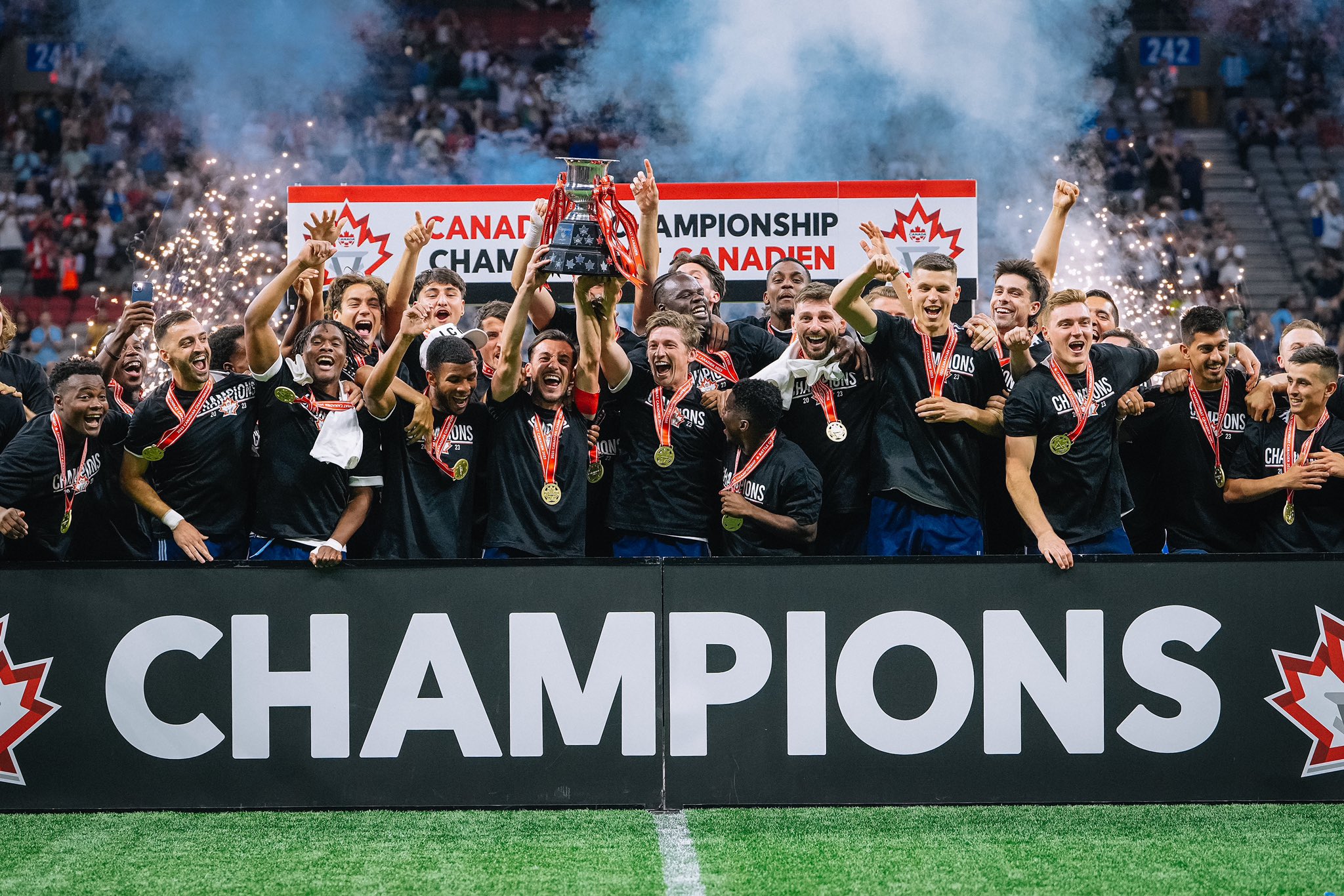In preparation for Canadian Championship final, we take a look at the history of the national tournament, in addition to previewing the hotly contested showdown between Vancouver Whitecaps and Toronto FC.
On September 25, the Vancouver Whitecaps will host Toronto FC in the final of the 2024 Canadian Championship. The national tournament lacks the history of its neighbor to the south — the U.S. Open Cup — but it has seen exponential growth since its founding in 2008, especially with the establishment of the Canadian Premier League and the League 1 system, Canada’s semi-pro tier.
Before we discuss what happened in the 2024 edition, it is valuable to examine the tournament’s history and see just how far it has come.

While there had been multiple iterations of national competitions to crown the best soccer team in Canada, up until 2008, they had all been amateur competitions and not necessarily recognized as fully legitimate ways of crowning a national champion.
Finally, Canada Soccer stepped in and decided that its national tournament should be more regulated and have a clear top tier. For the first three editions from 2008-2010, the national champion was decided between Canada’s three fully professional teams: Toronto FC, Montreal Impact, and Vancouver Whitecaps. As more professional sides began to pop up in the country, the number of teams would begin to increase, starting in 2011 with FC Edmonton, then Ottowa Fury in 2014.
It wasn’t until 2018 that semi-pro teams featured in the competition, as AS Blainville and the Oakville Blue Devils earned a spot in the tournament after successful 2017 campaigns. While this shook up the tournament, 2019 was the biggest year to date, as seven new professional clubs would enter the fold as the inaugural Canadian Premier League season kicked off, bringing the total of teams from 6 to 13.
While many fans of the Canadian MLS and USL clubs dismissed the Canadian Premier League teams in their first Voyageurs Cup appearance, Cavalry FC shocked Canada by defeating the Vancouver Whitecaps 2-1 on aggregate to advance to the semifinal round.
Since the addition of the Canadian Premier League teams to the tournament, there have been multiple upsets at every level. Semi-pro League 1 teams have upset CPL teams, CPL teams have knocked out MLS squads, and the 2020 Canadian Championship final came down to a penalty shootout between Toronto FC and CPL juggernauts Forge FC, which the MLS side would eventually win.
To date, all but one of the 16 Voyageurs Cups have been won by MLS sides (the Montreal Impact were in the NASL when they won the inaugural championship in 2008, and transitioned to MLS in 2012), with Toronto FC leading the way with eight titles, Montreal with five, and Vancouver having won three, including the last two.
In 2024, there were 14 teams competing for the title: three MLS clubs, all eight CPL teams, and the champions from the three semi-pro league divisions in Canada (League 1 Ontario, League 1 Quebec, and League 1 British Columbia). In the lead up to the final between Toronto FC and the Vancouver Whitecaps, this season’s edition of the Voyageurs Cup has been full of upsets, as both the HFX Wanderers and CF Montreal were upset by teams a level below them in the footballing pyramid.
While the Wanderers lost to CS Saint-Laurent of Montreal in a single-match elimination game, CF Montreal lost to Forge FC in a two-legged aggregate match, showing that CPL teams can compete with MLS sides. This, for Canadian fans, can be vindicating, as, at times, it can feel like the MLS clubs deeply disrespect the level of CPL clubs and their players, oftentimes not seeing their value.
Kwasi Poku, what a goal 😮💨
What a way for @ForgeFCHamilton to score their second vs. Toronto FC in the #CanChamp semi-final 🤩 #CanPL | 📺 @onesoccer pic.twitter.com/0A4t5f01IR
— Canadian Premier League (@CPLsoccer) July 11, 2024
One example is Kwasi Poku, a player who was in the Toronto FC academy, never got his chance with the first team, and, after a successful stint with Forge FC, has now gone on to fetch a CPL record €500,000 transfer fee to second division Belgian side RWD Molenbeek. Poku was a huge part of Forge’s upset win over CF Montreal, and the near-second upset against Toronto FC, in which Forge would lose on aggregate.
Toronto FC and CF Montreal both had witnessed Poku’s talents firsthand, and despite the cries from many fans to sign him, neither club chose to reinvest in the Canadian footballing pyramid.
For the Canadian MLS teams, the Canadian Championship would have little upside if it weren’t for the CONCACAF Champions Cup spot. In a way, it is a lose-lose situation for them, because if they win, it’s expected, but if they lose, it’s a massive failure.
Regardless, once again, the title will go to an MLS team, as Toronto FC will have to travel to Vancouver to take on the two-time defending Voyageurs Cup champions. As if the momentum of back-to-back titles wasn’t enough, the Whitecaps have recently bolstered their side with the signing of a new designated player Stuart Armstrong, which now gives the team two Scottish internationals with that tag on its roster.
While the Canadian Championship isn’t the only way for these MLS teams to qualify for the CONCACAF Champions Cup, it is the most realistic, and with Vancouver looking like the only Canadian team with legitimate MLS Cup aspirations, this might be Toronto’s only chance this year to return to continental football and improve the morale around first year manager John Herdman.
The Whitecaps will be the overwhelming favorite, but as is the case with cup football, anything can happen in a single-game elimination match.








